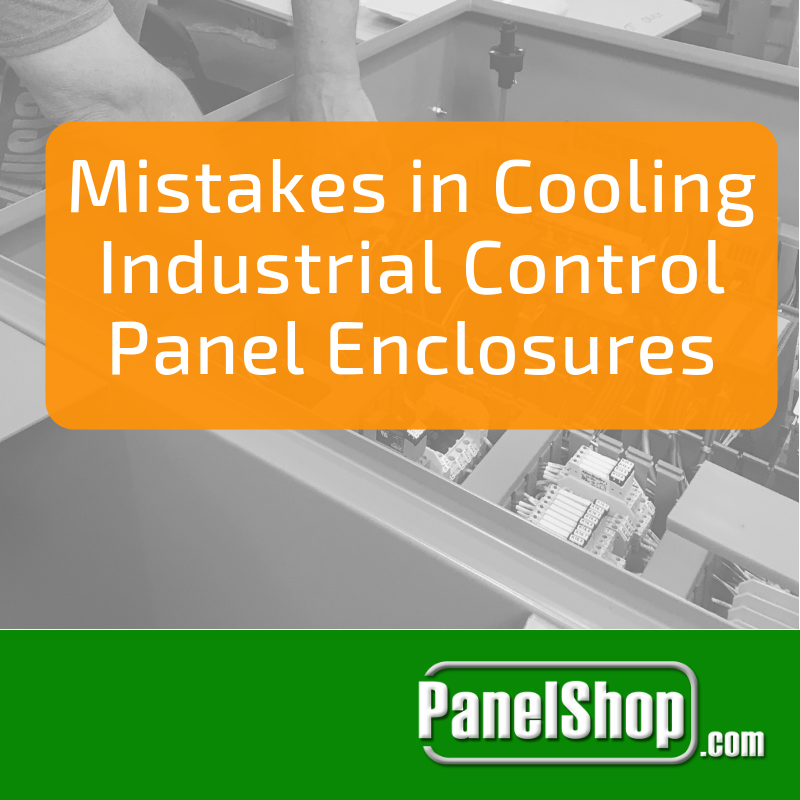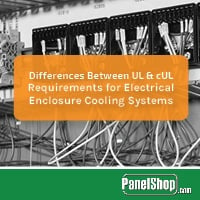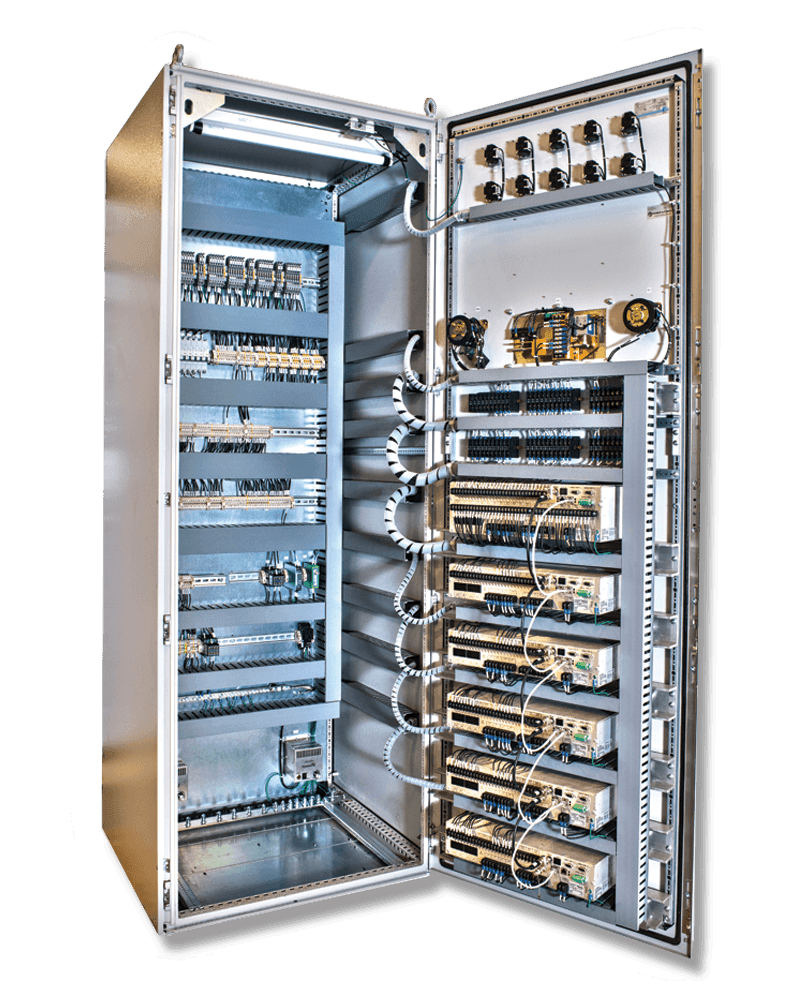
In the cold winds of winter or the heat of summer, electrical enclosures require temperature control.
More often than not, electrical enclosures must be cooled because internal components continuously radiate heat. Overheating within an enclosure can dramatically reduce the lifespan of the equipment (including PLCs, HMIs, and drives), and cause malfunctions or entire system shutdowns.
To regulate the temperature of your electrical enclosure, consider passive cooling design or active cooling technology.
Passive Cooling
Convection:
A basic principle guides the concept of convection in electrical enclosure design. Because heat always transfers from a higher temperature material to a lower temperature material, enclosures can be designed with strategically positioned vents to allow hot air to escape and be replaced by cooler air.This method may keep an enclosure cool, but only works for electrical enclosures placed where the outside air stays consistently colder than the air inside the enclosure. Vents may also require air filters to prevent dust or dirt from entering the enclosure.
Active Cooling
Forced Convection:
If passive convection doesn’t quite do the job, fans or blowers can help cool internal components more effectively. According to the same basic principle of convection, moving air faster throughout the enclosure boosts the cooling effect. Filters are still useful to protect electrical enclosures from contamination, but will not protect against extreme variations in humidity.Air Conditioning/Heat Exchangers:
When convection isn’t enough to cool the enclosure or factors like humidity are an issue, try closed-loop cooling. Heat exchangers cool air effectively in colder environments where humidity impacts the design, whereas air conditioners work best for electrical enclosures in hot environments.
Engineering High-Performing Panels
When looking for an electrical control panel supplier, choose experts who understand the long-term challenges of building and maintaining high quality equipment. PanelShop.com builds custom control panels with comprehensive engineering support, ensuring that every project receives optimal panel design and execution. Get a custom quote for your next control panel project within 48 hours, or learn more about what PanelShop.com can do for you.





